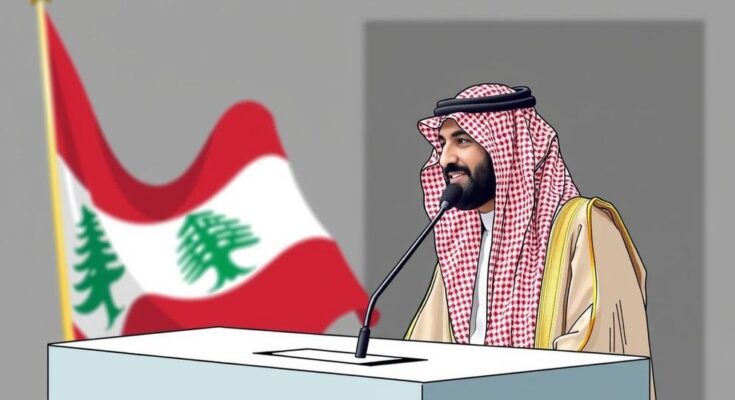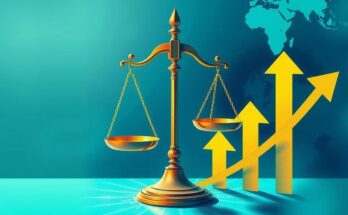Lebanon’s newly elected president Joseph Aoun emerges from a Saudi-driven diplomatic push, signaling a potential shift in the political landscape after a two-year vacuum. His election entails crucial elements of regional power dynamics and internal negotiations, particularly regarding Hezbollah’s influence and disarmament. This development highlights Lebanon’s complex sectarian politics and the significant role of international actors in shaping domestic governance.
The recent election of Army Chief Joseph Aoun as Lebanon’s new president symbolizes a significant turning point in the country’s ailing political landscape. Saudi Arabia played a pivotal role in consolidating support for Aoun, culminating in a decisive vote by parliament after prolonged political deadlock. This election reflects not only the end of a two-year presidential vacuum but also indicates the complexities of Lebanese politics, especially concerning Hezbollah’s accommodation after years of military and political dominance.
Prior to the election, Lebanon’s political factions were embroiled in indecision, struggling to converge on a candidate due to sectarian divides. Amid this turmoil, Saudi officials, alongside Western diplomats, engaged in intensive negotiations to align various groups under a single candidate. Their diplomatic efforts succeeded when Aoun secured ninety-nine votes, eclipsing the necessary two-thirds majority, with notable participation from Hezbollah and their allies, who shifted their votes following strategic meetings. This collaborative approach marked a significant shift in the political dynamics of Lebanon, as Hezbollah’s support signaled a willingness to engage with a candidate perceived to possess a mandate to address their disarmament, raising questions about the group’s future and power.
The election outcome also illustrates the changing external influences on Lebanon, particularly the diminishing Iranian dominance previously enjoyed under former President Michel Aoun, and the reassertion of Saudi Arabia’s interest in Lebanese political affairs. International actors, including the United States and France, monitored these developments closely, acknowledging Lebanon’s intricate balance of power. This interventional geopolitical backdrop further complicates Lebanon’s internal struggles, whereby lawmakers expressed their discontent regarding foreign influences on domestic governance.
In light of these rapid developments, Lebanon is at a critical juncture, with Aoun tasked with unifying a fragmented political landscape while addressing ongoing security concerns. The disarmament of Hezbollah remains a daunting challenge that will require careful negotiation and potential concessions from both local and international stakeholders. Moving forward, Aoun’s leadership is pivotal for stabilizing Lebanon amidst external pressures and fostering domestic sovereignty, which will ultimately define the nation’s path towards recovery and governance.
Lebanon has long experienced a volatile political landscape accentuated by sectarian divides, culminating in a presidential vacuum lasting over two years. Various factions have historically contested political power, often resulting in extensive stalemates. The election of a new president is significant not only for domestic governance but also for regional geopolitics, particularly regarding the influence of Iran and Saudi Arabia in Lebanese affairs, as well as the challenging dynamics involving Hezbollah, a powerful militant group with significant political clout in the country.
The election of Joseph Aoun as president represents a momentous shift in Lebanon’s political environment, facilitated by a Saudi-led diplomatic campaign. His presidency marks a potential turning point in addressing the entrenched issues of governance, sectarian divides, and the formidable challenge of disarming Hezbollah. The evolving interplay between local governance, external influences, and the aspirations of the Lebanese populace will be crucial in determining the country’s future stability and progress.
Original Source: www.cnn.com




